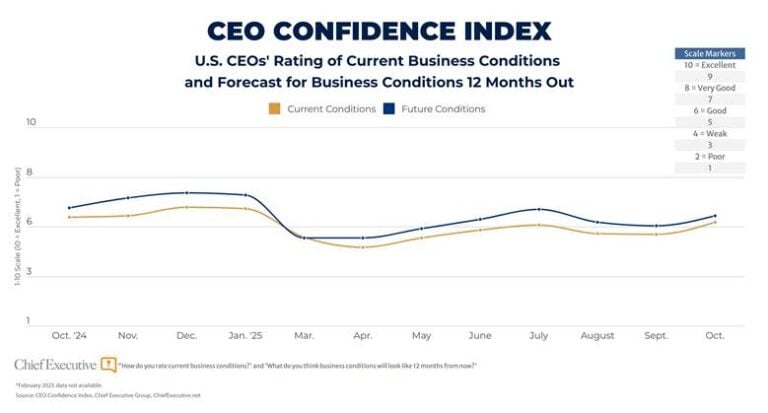
The pressure is on for businesses to make the call on whether to mandate vaccination for their employees. With half of U.S. employers planning or considering a vaccine mandate by year end, the Biden Administration announced that government employees and contractors are required to be vaccinated by December 2021, and that employers with more than 100 employees will be required to enact a vaccine mandate. In effect, businesses can either act now or wait for the Occupational Safety and Health Administration’s regulations to force them to do so. To make the decision, employers must understand and consider the business risks of a low employee Covid vaccination rate.
Almost the entire country is at high risk for Covid infection right now. While community transmission rates are likely to decline in the coming months, Covid will continue to pose an ongoing threat to employee and community health and to ongoing business operations. Enhanced communication, paid time off and incentives can move a modest portion of the workforce to be vaccinated, but only to a point. Companies can achieve much higher vaccination rates by implementing a vaccine mandate. They also need a risk analysis to understand the impact a mandate would have on worker productivity and safety, organizational reputation, ability to attract and retain talent and potential liability claims.
The most obvious risk businesses face from unvaccinated employees is that they might get sick, lose time at work and incur medical expenses. Covid vaccination cuts the risk of a Covid infection by a factor of five, and the likelihood of hospitalization by a factor of over 20. What’s more, people exposed to an unvaccinated person who has Covid are almost three times more likely to be infected than those who are exposed to a vaccinated person who has Covid. The typical employee who contracts Covid misses work for at least 10 business days and unvaccinated colleagues who are exposed to them miss 14 days of work to quarantine, even if they are never ill.
Testing can be a quagmire as well. The requirement to perform regular testing on those who are unvaccinated represents avoidable cost and administrative effort for employers. While federal law does not require employers to pay for such compulsory testing, many states prohibit forcing employees to bear this financial responsibility.
There are also safety, liability and reputational risks. Employers are required to offer a safe work environment, and unvaccinated employees pose a special risk to the almost 3% of US adults who have compromised immune systems. This poses potential employer liability under the Americans with Disabilities Act. Employers that have not mandated Covid vaccination also bear the risk of reputational damage if their worksite is identified as the source of a community outbreak.
Some employers have expressed concern that if they implement a mandate now they could lose employees to competitors with no such mandate. The experience of mandates implemented so far is that very few employees resigned, were suspended, or were terminated. The Medical University of South Carolina reported five terminations (0.03% of their employees). United Airlines attained 99.5% compliance with its strict vaccine mandate, and reported an increase in new job applicants. When New York State issued its vaccine mandate, it saw a late surge of vaccinations and better-then-expected staffing. Early press reports suggested that “dozens” of Massachusetts State Police resigned due to the vaccine mandate, but later reports found only a single resignation. In most instances, few employees will leave their jobs to avoid getting a Covid vaccination, and this might be offset by decreased number of staff who will be out on quarantine in the coming weeks and months.
Employers also face the conundrum of conflicting national, state and local regulations around vaccine mandates. The U.S. Supreme Court found vaccine mandates constitutional, although the governor of Texas recently announced a state ban on vaccine mandates, which would contravene federal regulations. Companies should check with their counsel on implications; early indications are that large national companies will continue to implement mandates while the matter is litigated.
Employers have faced many difficult calls about how to deal with the unfamiliar during the pandemic. The decision to adopt a vaccine mandate is no different. Higher rates of Covid vaccination help protect employee and community health, lower health care costs, and decrease the possibility of business disruption. But are the risks to an organization greater if it institutes a mandate or if it abstains from such an action? It’s time for every organization to do the analysis. The immediate advantage will go to those employers that have quickly and accurately weighed the impact of a vaccine mandate against related business risks.




0

1:00 - 5:00 pm
Over 70% of Executives Surveyed Agree: Many Strategic Planning Efforts Lack Systematic Approach Tips for Enhancing Your Strategic Planning Process
Executives expressed frustration with their current strategic planning process. Issues include:
Steve Rutan and Denise Harrison have put together an afternoon workshop that will provide the tools you need to address these concerns. They have worked with hundreds of executives to develop a systematic approach that will enable your team to make better decisions during strategic planning. Steve and Denise will walk you through exercises for prioritizing your lists and steps that will reset and reinvigorate your process. This will be a hands-on workshop that will enable you to think about your business as you use the tools that are being presented. If you are ready for a Strategic Planning tune-up, select this workshop in your registration form. The additional fee of $695 will be added to your total.

2:00 - 5:00 pm
Female leaders face the same issues all leaders do, but they often face additional challenges too. In this peer session, we will facilitate a discussion of best practices and how to overcome common barriers to help women leaders be more effective within and outside their organizations.
Limited space available.

10:30 - 5:00 pm
General’s Retreat at Hermitage Golf Course
Sponsored by UBS
General’s Retreat, built in 1986 with architect Gary Roger Baird, has been voted the “Best Golf Course in Nashville” and is a “must play” when visiting the Nashville, Tennessee area. With the beautiful setting along the Cumberland River, golfers of all capabilities will thoroughly enjoy the golf, scenery and hospitality.
The golf outing fee includes transportation to and from the hotel, greens/cart fees, use of practice facilities, and boxed lunch. The bus will leave the hotel at 10:30 am for a noon shotgun start and return to the hotel after the cocktail reception following the completion of the round.